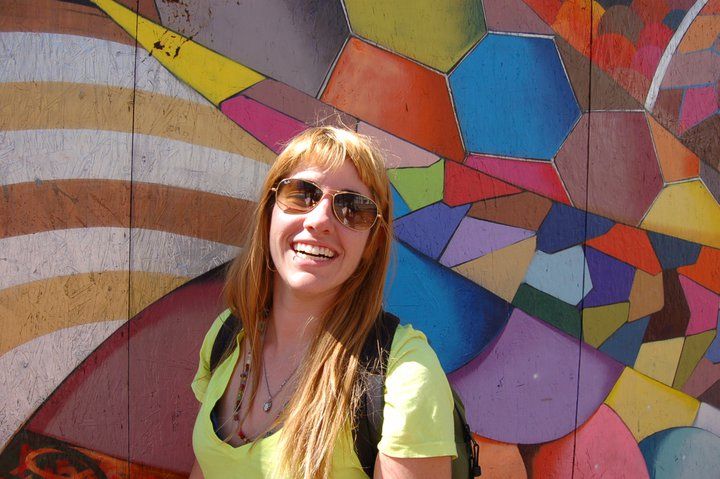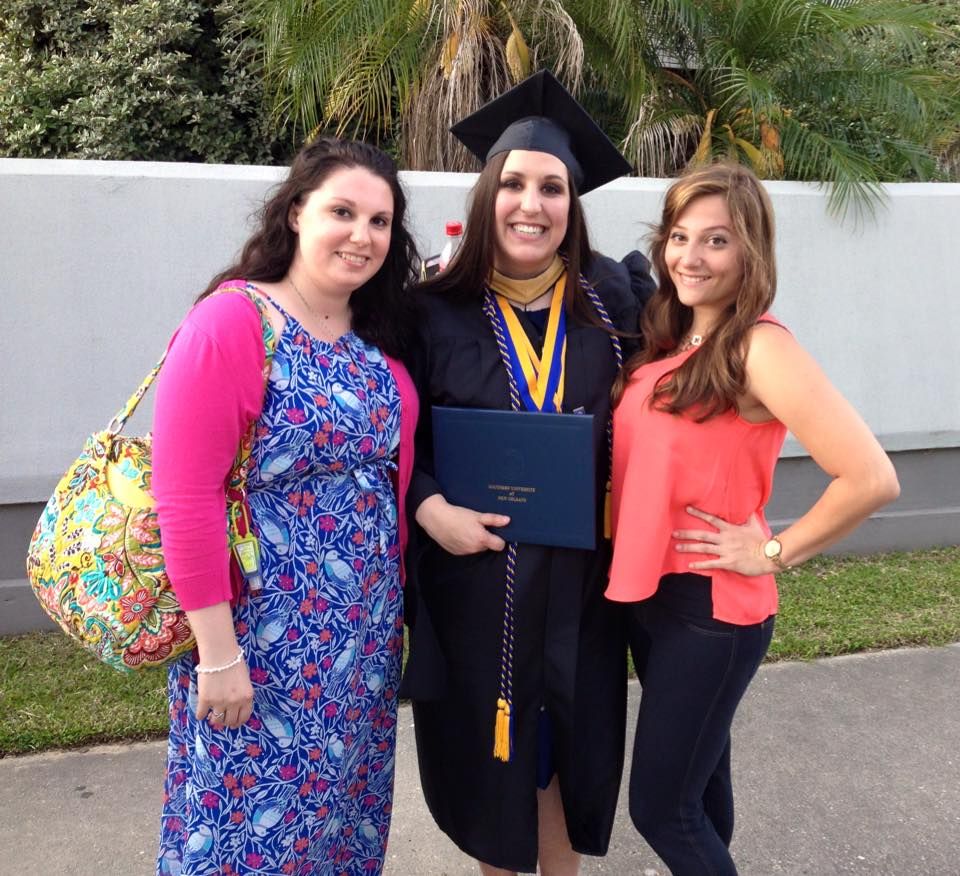
Miss Piggy, Kermit preparing for future storms
June 10, 2015
Meet Morgan Smith: A Q&A with the local artist
June 10, 2015A master’s degree was always part of Cut Off native Liz Dantin’s plan. Her time and energy had been focused on counseling throughout her undergraduate work at Nicholls State University and in January 2013, she found herself sitting among the students at Southern University at New Orleans, beginning the next chapter on her journey to becoming a social worker.
As her first summer semester rolled around in June 2013, the pain set in. Her lower back constantly ached, her stomach was in knots and sometimes, it became difficult to breathe. Soon she was bouncing from a gastroenterologist for stomach pain, a urologist for possible kidney issues and a vascular specialist, all of whom found nothing out of the ordinary. Worse still were the stacks of schoolwork beginning to pile up.
“All these doctor trips were during my semester, so it kind of made it an inconvenience because I would end up getting blood work and scans done early in the morning and then that afternoon, I would have to go sit through a two-hour lecture class,” Dantin said. “I ended up spending half my summer semester in and out the doctor’s office, but yet still never missing a day of class.”
Having experienced a deep vein thrombosis, a blood clot lodged within the innermost veins of the body, following knee surgery from a softball injury in high school, Dantin feared the issue, which the Centers for Disease Control and Prevention says effects roughly 900,000 people each year in the United States, was resurfacing. Following a full ultrasound on the veins of her body in September, however, she was ruled blood clot free.
All that changed on Oct. 6, 2013, when the sense of normalcy Dantin briefly experienced was wiped away in a matter of minutes.
“I remember it like it was yesterday,” she said. “The Saints were playing the Chicago Bears. … I remember after the game, my mom asked if I wanted to take a trip to Wal-Mart for a few groceries and I said, ‘Sure, why not?’ I had finished all my schoolwork and had nothing else to do. As I was walking through Wal-Mart, I told my mom something didn’t seem right. I couldn’t breathe and I was starting to feel really weak in the parking lot when we were about to load up the car to go home.”
The symptoms were eerily similar to ones she experienced with the first blood clot and before long, Dantin found herself in the emergency room, confused and searching for answers.
Scans, blood tests … the clock slowly ticked into the evening hours as doctors worked to determine a cause. By 6:30 p.m., Dantin was diagnosed with a pulmonary embolism, a clot that breaks off from a deep vein thrombosis and travels to the lung.
“I told [the doctor] that it was impossible because all summer and months after summer, I had been running tests and scans everywhere and no doctor ever caught that,” she said. “He ended up telling me that sometimes these things just happen and I would have to be admitted into the hospital for treatment. I had dealt with this before in high school and already stayed nine days in the hospital … I was completely devastated and knew that with just a few days in the hospital, I would get so behind on my school work and that it would be impossible to catch up.”
Although pulmonary embolisms are considered common, young people are not often within the traditional patients at risk. Factors that increase risk, according to The National Blood Clot Alliance, include being over the age of 60 and sitting or being immobile for long periods of time. In Dantin’s case, her risk of experiencing another blood clot substantially increased because of her bout with the previous blood clot and having undergone major surgery.
Dantin was sent home after four days in the hospital and was instructed to remain on blood thinners and schedule routine checkups every six months. Still seeking answers, she reached out to a specialist at Tulane Medical Center who ran numerous scans and blood tests.
“My doctor over at Tulane believed that it was probably some kind of genetic disorder going on that caused this,” she said. “I ended up finding out after my blood results came back that I had no genetic disorder or blood clot disorder, which was a relief. I still had no idea how this ended up happening to me, though.”
Throughout this process, Dantin continued attending classes part-time and participated in an internship. All these hospital visits, however, left her feeling more stressed than excited about her next year.
“I was in and out the hospital for months until my first year of grad school was completed,” she said. “I had seen over 10 different doctors, been through a bunch of scans and had a ton of needles poking me to take blood. I remember I would have a CT scan where I would have to fast in the morning and then get some blood work done and after that was all said and done, I would have to go to class to turn in a paper. A grad school paper was never anything easy. I ended up having to do a 10-page paper one time in between getting scans done and blood work so I could turn it in when I would get to school that afternoon.”
With each new appointment, Dantin became increasingly concerned that she would not finish her course requirements because of the amount of time she spent away from the classroom.
“It was a roller coaster of emotions,” she recalled. “I was terrified mostly because I was worried about failing in grad school. I wanted my master’s degree more than I ever wanted anything and I was not going to let these hospital trips, blood work and scans get in the way of reaching my goal.”
Through her faith and the support of her family and friends, who picked up the phone any time she needed to talk and constantly showed their support throughout the process, however, she knew she could get to graduation day despite the odds stacked against her.
“When I found out I was going through another blood clot, I was completely devastated and felt that God was punishing me,” she said. “It took a lot of people praying for me and praying myself. After something finally clicked for me, I completely changed that way of thinking fast and I started attending church every Sunday. I was so appreciative that my life was spared and was completely fine with following God’s plan for me and to this day, that’s what I have been doing.”
Nearly a year after experiencing those first symptoms, Dantin was ruled blood clot free on May 7, 2014. And just one year after that, on May 9, she received her Master of Social Work, a day the student sometimes thought would never come. Although obtaining the degree became a significantly more complicated process than the average student ever experiences, the countless hours of hard work paid off as she walked across the stage, turning the page on one chapter and beginning a new journey as a certified social worker with plans to receive full licensure in the near future.
“I would have never made it without any of them helping to push me to succeed and not give up,” Dantin said. “Just because you are thrown curve balls, doesn’t mean you have to strike out of the game. You pay close attention to what is being thrown your way and you knock it out of the park. I took my sickness and everything that came with it and I stayed focused on what I needed to accomplish.”
Cut Off native Liz Dantin (center) celebrates her graduation from Southern University at New Orleans with friends Lauren Breaux (at right) and Stephanie Pagliughi on May 9 at the University of New Orleans Lakefront Arena.











